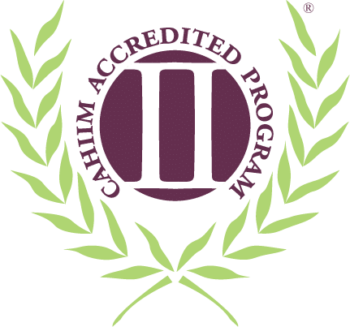State Authorization of Distance Education
http://web.jhu.edu/administration/provost/programs_services/accreditation/state_authorization
The Maryland Higher Education Commission has approved Johns Hopkins University for participation in the National Council for State Authorization Reciprocity Agreements (NC-SARA) effective February 22, 2016. NC-SARA is a voluntary, regional approach to state oversight of postsecondary distance education.
NC-SARA standards for accreditation
https://nc-sara.org/eligibility-participation
The institution is located in a SARA member state:
The institution is a degree-granting institution, appropriately authorized (by Congress, a U.S. state, territory or district, or a federally recognized Indian tribe) to award associate degrees or higher;
The institution is institutionally accredited by an accrediting body recognized by the U.S. Department of Education, whose scope of recognition, as specified by the U.S. Department of Education, includes distance education.
The institution agrees that, in cases where the institution cannot fully deliver the instruction for which a student has contracted, it will provide a reasonable alternative for delivering the instruction or reasonable financial compensation for the education the student did not receive.
Non-public institutions must also meet the institutional financial responsibility requirements for SARA participation.
The Middle States Commission on Higher Education (MSCHE): Johns Hopkins University
https://www.msche.org/institution/0168/
Accreditation Granted: 1921
Last Reaffirmation: 2014
Next Self-Study Evaluation: 2023-2024
Next Mid-Point Peer Review: 2028
Standards for accreditation
https://www.msche.org/standards/
The Middle States Commission on Higher Education Accreditation Standards and Requirements of Affiliation are comprised of the enclosed seven standards and 15 requirements which serve as an ongoing guide for those institutions considering application for membership, those accepted as candidate institutions, and those accredited institutions engaged in self-review and peer evaluation. Accredited institutions are expected to demonstrate compliance with these standards and requirements, to conduct their activities in a manner consistent with the standards and requirements, and to engage in ongoing processes of self-review and improvement.
Four principles guided the development of these standards: first, the mission-centric standards acknowledge the diversity of institutions; second, the focus of the standards is on the student learning experience; third, the standards emphasize institutional assessment and assessment of student learning; fourth, the standards support innovation as an essential part of continuous institutional improvement.
These standards affirm that each institution’s individual mission and goals remain the context within which these accreditation standards are applied. They emphasize functions rather than specific structures, recognizing that there are many different models for educational and operational excellence.
Commission on Accreditation for Health Informatics and Information Management Education (CAHIIM)
The Master’s Degree in Health Informatics Program is accredited by the Commission on Accreditation for Health Informatics and Information Management Education (CAHIIM).
